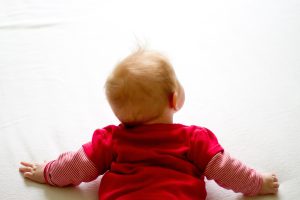 Every child has the potential for developing a mental health illness. Environmental factors, family dynamics, nutrition, and chemical makeup can cause diagnosable and treatable mental and behavioral disorders in kids born and raised with their biological parents. However, adopted children are twice as likely to develop mental health issues due to their often-unstable backgrounds.
Every child has the potential for developing a mental health illness. Environmental factors, family dynamics, nutrition, and chemical makeup can cause diagnosable and treatable mental and behavioral disorders in kids born and raised with their biological parents. However, adopted children are twice as likely to develop mental health issues due to their often-unstable backgrounds.
Why are adopted children more likely to have mental health issues?
Adopted children are more likely to have been exposed to neglect, abuse, and abandonment than children who remain with their biological parents. Many babies were prenatally compromised with drug and alcohol abuse. There are also many children who were placed for adoption after physical and sexual abuse. Some kids may have post-traumatic stress disorder following the loss of both parents to an accident. These factors are not guaranteed to result in a mental disorder, but the risk is greater due to the higher incidence of physical and mental stressors.
Mood Disorders
Adopted children are twice as likely to suffer from mood disorders. Behavioral issues like depression and anxiety often cause significant problems for adoptees. Prospective parents and adoptive families may see the child externalize these behaviors by acting out, picking fights, disrupting their environments, and intentionally breaking the rules. Therapists often treat adopted children for disorders such as low self-esteem, attachment and abandonment issues, addiction, sexual misconduct, and oppositional defiant disorders.
Factors That Can Lead to Disorders
Some of the biggest factors that lead to mood disorders include the age of the child at their adoption, the geographic location where they were placed for adoption, and the conditions of their previous home or foster home. Children are especially susceptible to their environment and adults who may expose them to abusive behaviors. Other influencing factors are whether the child is still in contact with the biological parents or siblings and if there is any history of mental illness in the biological family.
The Broader Picture
Adopted children are more likely to develop attachment issues, abandonment issues, and identity confusion. As adopted kids grow up and start to ponder adulthood, sometimes they cannot seem to find their place in the world. They may have trouble understanding their purpose and direction for their future. They may experience resentment, anger, and confusion towards their biological parents. Some spend a great deal of time pondering the idea of reaching out to their biological family to reconnect to their roots.
As young adults, they may develop drug addictions, find themselves acting out sexually, or use self-harm as a coping method. Adopted teens often find it hard to form close ties with friends and purposefully avoid close emotional connections with their peers. Often, young adults want to know why they were given up for adoption. They question their heritage and if it is rooted in their adoptive or biological families. Many will have unspoken questions about what will happen after high school or college graduation and if they will still have the support of their adoptive family.
Healing and Recovery
Parents should be aware that adopted children are more likely to develop substantial problems but this is never an absolute. Parents, grandparents, teachers, and older siblings can watch closely and connect a child with a professional therapist if necessary. Many of mental health disorders can be diagnosed and treated with behavior and cognitive therapies. Children can learn how to be accountable and responsible for their emotional health. With the support of their adopted family, children and young adults can modify their behavior to create a healthy and favorable outcome for a bright future.







